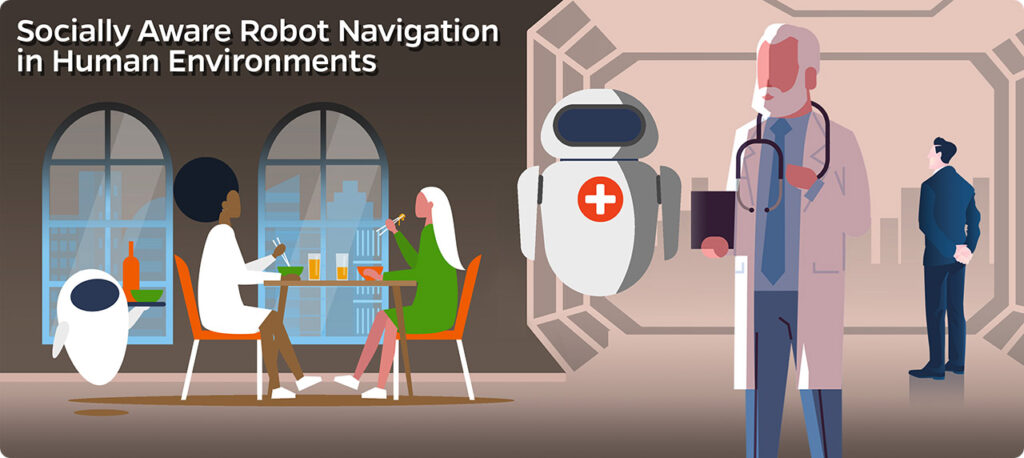Chien-Ming Huang, Johns Hopkins Whiting School of Engineering
I-Jeng Wang, Johns Hopkins Applied Physics Laboratory
For mobile robots to navigate safely and follow social norms in human spaces, they need to anticipate people’s navigation and interaction: when two people are talking in the hallway, the robot should not cut across them. Just as important is the ability of a robot, operating in a structured setting such as an office or hospital, to consider the impact of its actions on human performance and success.
The goal of this research is to develop autonomous agents, such as robots or vehicles, that navigate indoors and consider both social and physical boundaries. Researchers will model dynamic social groups, develop intent-aware robot navigation, and deploy the autonomous agents to a test environment. The research will train a special type of recurrent neural network called a long short-term memory network to remember what it learned in the long term while adapting to short-term situational knowledge. This enables the autonomous agents to learn social norms and apply special situational knowledge that may create exceptions, as humans do.
Successful demonstration of robots that abide by human social norms and objectives will have far-reaching impacts, increasing public trust and the adoption of robotic technologies not only in critical domains such as patient care but in everyday life.
